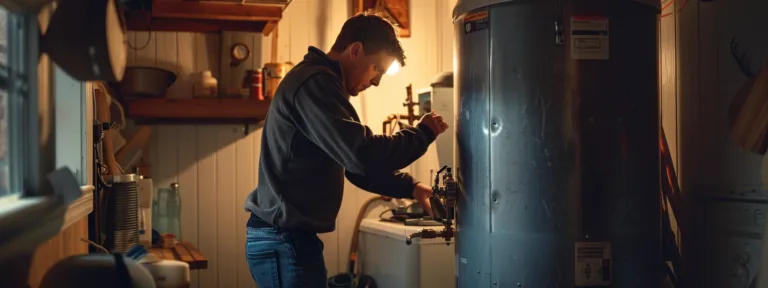Bend, central oregon ,needs:
Many homeowners in Bend, Oregon, overlook the importance of proper water heater installation, which can lead to costly repairs down the line. This comprehensive guide will explore the various water heater options available, provide a step-by-step installation process, and outline necessary plumbing codes specific to Bend. By engaging with this content, readers will gain valuable insights into not only selecting the right water heater but also ensuring the installation is done efficiently. Discover how to avoid common pitfalls that could waste time and cash while maximizing the benefits of professional water heater services.
Key Takeaways
- Assessing hot water needs is essential for selecting the right water heater
- Consider energy efficiency ratings to reduce long-term operational costs
- Proper installation ensures compliance with local codes and safety standards
- Regular maintenance extends the lifespan and efficiency of water heaters
- Local incentives are available for energy-efficient water heaters in Bend, Oregon
Understanding Water Heater Options in Bend, Oregon
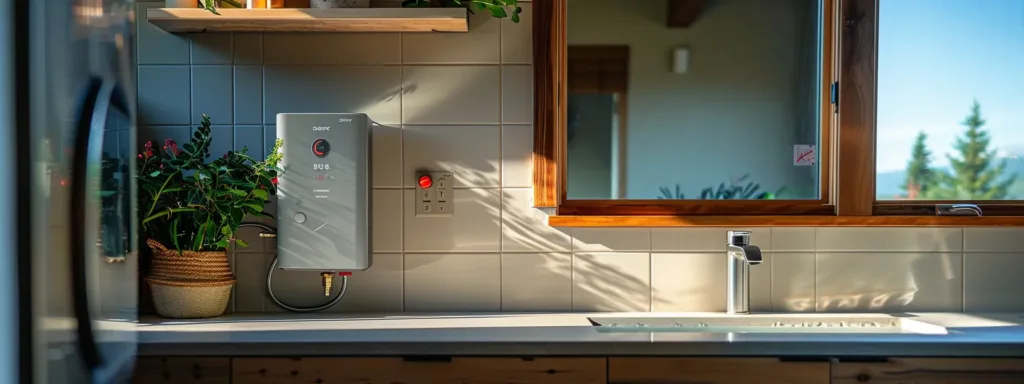
Assessing one’s hot water needs is fundamental when selecting a water heater in Bend, Oregon. Homeowners can choose between gas and electric models, each with distinct advantages. Additionally, the comparison between tankless and traditional storage tank systems offers various benefits. Energy efficiency plays a vital role, especially in Bend’s climate, where conditions can affect performance. Understanding these factors supports homeowners in making informed decisions that ensure reliable plumbing service without concerns like gas leaks plumbers bend oregon.
Assessing Your Home's Hot Water Needs
Determining a home’s hot water needs is a crucial step in selecting the right water heater for effective performance in Bend, Oregon. Homeowners should consider factors such as the number of occupants and peak usage times, as these elements can directly affect the type of system required. For instance, households with high demand might benefit from a heat pump water heater, which effectively uses low voltage to enhance energy efficiency while maintaining indoor air quality.
Comparing Gas and Electric Water Heaters
When comparing gas and electric water heaters, potential users should weigh several important factors, including efficient energy use and cost. Gas water heaters typically offer faster heating and lower operational costs, especially in areas like Central Oregon , where natural gas is accessible. On the other hand, electric models often require less maintenance and do not involve complex inspections associated with gas lines or plumbing installations. Homeowners must also consider the electrical wiring setup in their homes to determine which system can support their hot water needs efficiently:
- Assess fuel availability and cost-effectiveness.
- Evaluate energy efficiency ratings for both types.
- Consider installation requirements for electrical wiring and gas lines.
- Review maintenance needs and long-term operational costs.
Exploring Tankless vs. Traditional Tank Models
When considering water heater options, homeowners in Bend, Oregon, often weigh the benefits of tankless versus traditional tank models. Tankless systems, known for their compact design and on-demand heating capabilities, can provide a continuous supply of hot water, making them ideal for large households. However, traditional tank models may offer pride in their reliability and lower upfront installation costs, making water heater replacement an easier choice for some; thus, understanding the specific needs and potential issues like leaks is crucial for effective heater installation.
- Assessing your home’s hot water needs.
- Comparing gas and electric water heaters.
- Exploring tankless vs. traditional tank models.
Energy Efficiency Considerations
Energy efficiency is a critical consideration for homeowners in Bend, Oregon, as it impacts both utility costs and environmental sustainability. Customers should evaluate the energy efficiency ratings of different water heating systems, recognizing that more efficient models can significantly reduce long-term operational costs. For instance, choosing a heat pump with advanced insulation or smart technology can enhance efficiency by minimizing heat loss in pipes and ensuring optimal performance during colder months typical of Central Oregon:
- Assessing hot water needs.
- Comparing gas and electric water heaters.
- Exploring tankless vs. traditional tank models.
- Understanding energy efficiency considerations.
Selecting a Water Heater Suitable for Bend's Climate
Selecting a water heater suitable for Bend’s climate involves understanding various factors that influence performance and efficient energy use . Homeowners should consider systems with high energy efficiency ratings, such as Energy Star-certified models, to minimize energy costs. Additionally, considering the pressure requirements for multiple showers or appliances during peak usage times ensures that the chosen unit provides consistent hot water without interruptions, thereby enhancing overall satisfaction with the water heater service in the home.
Now that the choices are clear, it is time to think about the next steps. Preparing for installation will ensure a smooth process and the comfort of hot water at home.
Preparing for Water Heater Installation
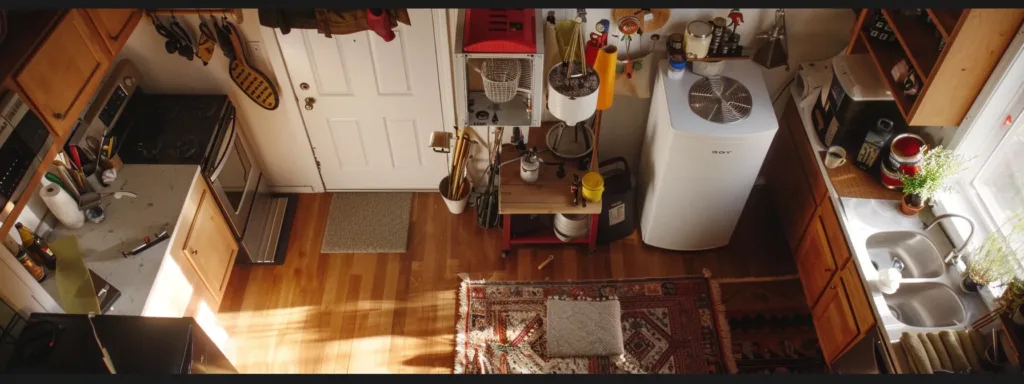
Preparing for water heater installation in Bend, Oregon, involves several key steps to ensure a smooth process. Homeowners must obtain necessary permits, gather essential tools and materials, and ensure safety measures are in place. Additionally, responsible disposal of the old water heater is crucial. This section will delve into each aspect, including the importance of selecting quality units like Bradford White and understanding warranties related to water heater repair and Rheem Manufacturing Company .
Obtaining Necessary Permits in Bend
Obtaining necessary permits for water heater installation in Bend, Oregon, is a critical step that homeowners must not overlook. This process ensures compliance with local building codes and safety regulations, especially for natural gas installations, which may require additional inspections by plumbing service licensed professionals. Homeowners can streamline this procedure by consulting with qualified plumbers in Bend, Oregon, who can guide them through the permit process, ensuring that the installation of this essential home appliance proceeds without complications.
Gathering Tools and Materials
Gathering the appropriate tools and materials is essential for a successful water heater installation in Bend, Oregon. Homeowners should prepare a checklist that includes items such as wrenches, screwdrivers, a drill, pipes, fittings, and safety gear like goggles and gloves. Having these materials on hand ensures that the installation process runs smoothly, minimizing the risk of delays or complications that could arise from missing equipment:
- Wrenches and screwdrivers for securing connections.
- Drill for mounting brackets or securing pipes.
- Safety gear such as goggles and gloves for protection.
- Pipes and fittings specific to the chosen system.
- Water heater installation manuals for reference.
Ensuring Safety Measures Are in Place
Ensuring safety measures are in place is crucial when preparing for water heater installation in Bend, Oregon. Homeowners should begin by disconnecting the power supply or gas line to prevent accidents during installation. Furthermore, using appropriate personal protective equipment, such as gloves and goggles, enhances safety while working. It is also advisable to have a fire extinguisher on site, especially for gas installations, ensuring compliance with safety standards and protection against potential hazards:
| Safety Measure | Description |
|---|---|
| Disconnect Power/Gas | Ensure the water heater is not connected to power or gas to prevent accidents. |
| Personal Protective Equipment | Use gloves and goggles to protect against injuries during installation. |
| Fire Extinguisher | Have a fire extinguisher on hand, particularly for gas installations, to address emergencies. |
Disposing of the Old Water Heater Responsibly
Responsible disposal of the old water heater is an essential step in the installation process in Bend, Oregon. Homeowners should check with local waste management services or recycling centers for guidelines on how to dispose of their old unit properly. This may involve arranging for a pickup service or delivering the appliance to a designated recycling facility that complies with environmental regulations, ensuring both safe and sustainable practices:
- Contact local waste management for disposal guidelines.
- Consider recycling options for metal and components.
- Schedule a pickup or plan for transportation to a recycling center.
With the preparations complete, the next step lies before you. Understanding each stage of the installation will ensure success.
Step-by-Step Water Heater Installation Guide
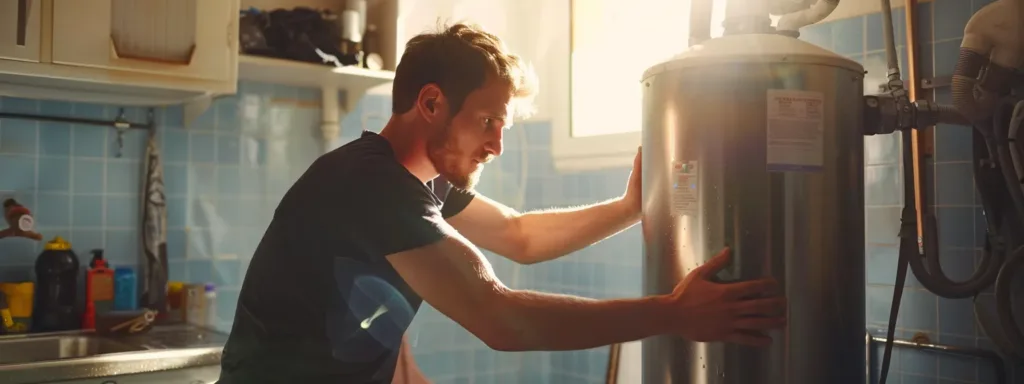
This step-by-step water heater installation guide outlines essential tasks for homeowners in Bend, Oregon. It begins with disconnecting and removing the old unit, followed by correctly positioning the new water heater. The guide then addresses connecting water supply lines, setting up gas or electrical connections, and testing the new installation pump for leaks and proper operation. Each step ensures a smooth and efficient installation process.
Disconnecting and Removing the Old Unit
Disconnecting and removing the old water heater requires careful attention to detail to ensure safety and compliance with local regulations in Bend, Oregon. Homeowners should start by shutting off the power supply or gas line, followed by turning off the water supply to prevent any leaks during the process. It is essential to have appropriate tools on hand, such as wrenches and safety gear, to facilitate the removal of pipes and water heating connections without risk of injury or damage.
Positioning the New Water Heater Correctly
Positioning the new water heater correctly is crucial for optimal functionality and efficient energy use . Homeowners in Bend, Oregon, should ensure the unit is placed in a well-ventilated area, away from potential hazards such as flammable materials. A level and stable surface will prevent operational issues and ensure the system runs effectively, contributing to reduced energy costs and a longer lifespan for the appliance.
Connecting Water Supply Lines
Connecting water supply lines is a critical step in the water heater installation process for homeowners in Bend, Oregon. It is essential to use the correct fittings and techniques to ensure water heater repair -free connections. Homeowners should carefully tighten the connections by hand and then use a wrench for a final snug fit, ensuring everything is secured without over-tightening that could damage the fittings:
| Step | Description |
|---|---|
| 1. Prepare the Lines | Ensure the water supply lines are clean and free of debris for optimal connection. |
| 2. Use the Correct Fittings | Select the appropriate size and type of fittings for the water supply lines. |
| 3. Hand Tighten | Connect the lines by hand until snug, ensuring a tight but not overly tight fit. |
| 4. Final Tightening | Use a wrench to securely tighten the fittings without damaging them. |
Setting Up Gas or Electrical Connections
Setting up gas or electrical connections is a critical step in the water heater installation process in Bend, Oregon. For gas units, it involves properly connecting the gas line, ensuring leak-proof fittings, and checking for leaks with soapy water. For electric models, homeowners must ensure that electrical connections are made according to local codes, using the appropriate wire gauge to support the unit’s power needs. This attention to detail helps prevent future issues and ensures a safe and efficient water heating operation.
Testing the New Installation for Leaks and Proper Operation
After completing the water heater installation, testing for leaks and ensuring proper operation is essential for a successful setup. Homeowners in Bend, central Oregon , should begin by carefully checking all connections, including water supply lines and gas fittings, for any signs of leakage. Utilizing a simple method, such as applying soapy water to joints, can reveal any leaks, which should be addressed immediately to prevent potential water damage or safety hazards.
With the water heater in place, attention shifts to compliance. Understanding Bend’s plumbing codes will ensure a safe and legal installation.
Complying With Bend, Oregon Plumbing Codes
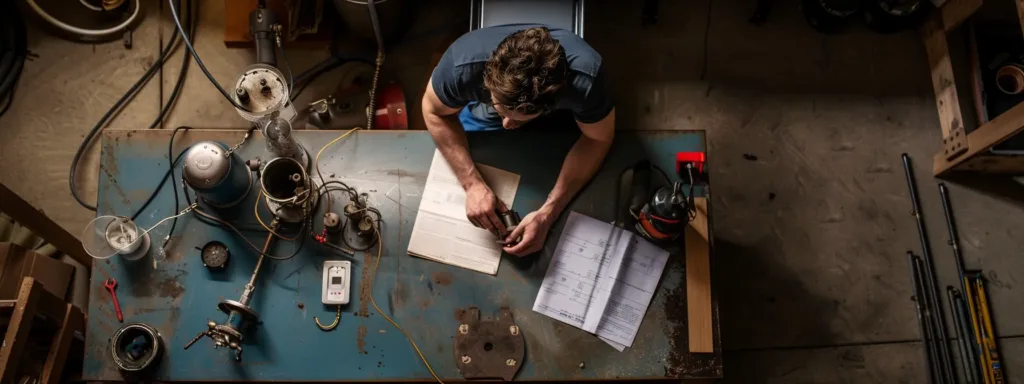
Understanding local installation regulations is crucial for homeowners in Bend, Oregon, to ensure a safe and compliant water heater installation. Scheduling inspections with local authorities verifies adherence to plumbing codes. Additionally, hiring licensed professionals not only simplifies the process but assures quality workmanship. Each of these aspects contributes significantly to a successful water heater replacement experience.
Understanding Local Installation Regulations
Homeowners in Bend, Oregon, must familiarize themselves with local installation regulations to ensure compliance and safety during water heater replacement . These regulations often dictate specific requirements related to the type of system used, clearances around the heater, and venting methods for gas units. Consulting the Bend building department or working with licensed plumbers can help ensure adherence to these codes, avoiding potential fines or safety issues that may arise from improper installations:
| Regulation Category | Description |
|---|---|
| Type of System | Requirements on approved water heater types, including tank and tankless models. |
| Clearances | Specifications for space around the water heater for safety and maintenance accessibility. |
| Venting | Codes related to venting for gas units to prevent carbon monoxide buildup. |
| Electrical Standards | Guidelines for electrical connections ensuring safe and compliant installations. |
Scheduling Inspections With Local Authorities
Scheduling inspections with local authorities is an essential step in the water heater installation process in Bend, Oregon. Homeowners should ensure that their installation adheres to local plumbing codes, which may require inspections for compliance and safety. Engaging with licensed professionals can simplify this process, as they often have established relationships with local officials, helping to facilitate timely inspections and ensure that all requirements are met for a successful installation.
Benefits of Hiring Licensed Professionals
Hiring licensed professionals for water heater installation in Bend, Oregon, offers numerous advantages. These experts possess the necessary knowledge of local plumbing codes, ensuring compliance and minimizing the risk of costly fines or unsafe installations. Their experience also allows for efficient installation, reducing the likelihood of future issues such as leaks or system failures, ultimately providing peace of mind for homeowners concerned about the reliability of their water heating supply.
Understanding the codes was just the beginning. To keep plumbing running smoothly, a few simple maintenance tips can make all the difference.
Maintenance Tips for Long-Lasting Performance
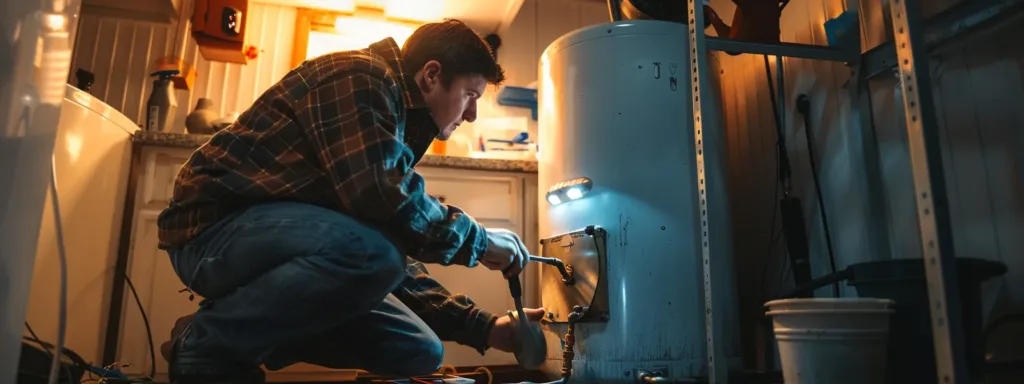
Maintenance Tips for Long-Lasting Performance
Regular maintenance is key to ensuring a water heater operates efficiently and lasts longer. Homeowners should routinely inspect for leaks and corrosion, flush the tank to remove sediment, adjust temperature settings for optimal efficient energy use, and recognize signs that indicate repairs are needed. These proactive measures help maintain reliable hot water service while minimizing the risk of costly repairs.
Regularly Inspecting for Leaks and Corrosion
Regular inspection for leaks and corrosion is essential for maintaining the performance and longevity of a water heater in Bend, Oregon. Homeowners should regularly check areas around the heater, including pipes and fittings, to identify any signs of water leakage or rust that may indicate corrosion. Addressing these issues promptly can prevent more significant damage and costly water heater repair, ensuring the water heater operates efficiently and safely.
Flushing the Tank to Remove Sediment
Flushing the tank to remove sediment is crucial for maintaining the efficiency and longevity of a water heater in Bend, Oregon. Over time, minerals and debris can accumulate at the bottom of the tank, impacting the water heater’s performance and increasing energy costs. Regular flushing helps prevent corrosion and maintains optimal heating efficiency, ensuring that homeowners continue to enjoy water heating reliable hot water service without unexpected interruptions.
Adjusting Temperature Settings for Efficiency
Adjusting the temperature settings of a water heater can significantly enhance its efficiency and performance in Bend, Oregon. For optimal efficient energy use, homeowners should set their water heater to a temperature of around 120 degrees Fahrenheit. This setting not only helps in reducing energy costs but also minimizes the risk of scalding and prolongs the lifespan of the unit by preventing overheating.
- Regularly inspect for leaks and corrosion.
- Flush the tank to remove sediment.
- Adjusting temperature settings for efficiency: Set the heater to around 120°F to enhance energy efficiency.
- Recognize signs that indicate repairs are needed.
Recognizing Signs That Indicate Repairs Are Needed
Homeowners in Bend, Oregon, should remain vigilant for signs that indicate their water heater may require water heater repair. Common indicators include inconsistent water temperatures, unusual noises, or visible corrosion around fittings and pipes. Addressing these issues promptly can prevent further damage and ensure that the water heater operates efficiently, providing a reliable hot water supply when needed the most.
You have taken the right steps to keep your equipment running smoothly. Still, questions remain, and those answers await in the next section.
Frequently Asked Questions
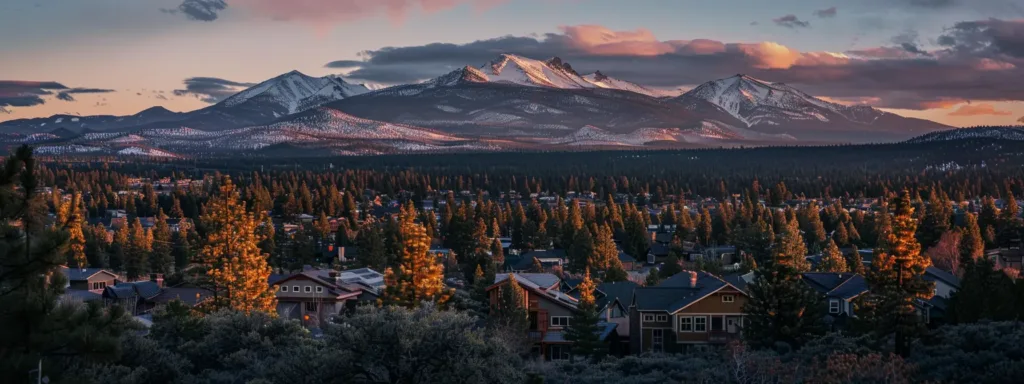
This section addresses common questions related to water heater installation in Bend, Oregon. It covers key topics including how to choose the right size water heater for specific household needs, the expected lifespan of a water heater, potential rebates or incentives available for energy-efficient models, the decision between DIY installation or hiring a professional, and the effects of Bend’s altitude on water heater performance. Each question provides valuable insights to assist homeowners in making informed choices about water heating.
How Do I Choose the Right Size Water Heater?
Choosing the right size water heater is essential for ensuring adequate hot water supply for a household’s needs in Bend, central Oregon . Homeowners need to consider the number of occupants and their hot water usage patterns, such as peak times for showers and laundry. A professional assessment can aid in determining the proper capacity, ensuring the selected unit operates efficiently and prevents issues like running out of hot water during high-demand periods.
What Is the Expected Lifespan of My Water Heater?
The expected lifespan of a water heater varies based on the type, maintenance, and usage conditions. Generally, traditional storage tank water heaters last between 10 to 15 years, while tankless models can extend up to 20 years or more with proper care. Regular maintenance, such as flushing the tank and inspecting for leaks, plays a significant role in maximizing the longevity of these systems, ensuring homeowners in Bend, Oregon, have reliable hot water for their water heating needs:
- Traditional storage tank water heaters: 10 to 15 years.
- Tankless water heaters: 20 years or more.
- Impact of regular maintenance on lifespan.
Are There Rebates or Incentives in Bend for Energy-Efficient Models?
Homeowners in Bend, Oregon, can benefit from various rebates and incentives for choosing energy-efficient water heater models. Local utility companies often provide financial incentives to encourage the adoption of high-efficiency systems, such as tankless water heaters or those with Energy Star ratings. Additionally, Oregon‘s state programs may offer tax credits or rebates, making the upfront investment more manageable while promoting sustainable energy use and reducing utility bills over time.
Can I Perform the Installation Myself or Should I Hire a Professional?
Homeowners in Bend, central Oregon face a decision when considering water heater installation: tackle the project themselves or hire a licensed professional. While DIY installation can seem cost-effective, it carries risks, such as improper connections and potential code violations, which may lead to safety hazards or costly repairs down the line. Hiring a professional ensures compliance with local plumbing codes and guarantees that the installation is performed safely and efficiently, ultimately providing peace of mind for homeowners:
- Consider the complexity of the installation.
- Evaluate personal plumbing knowledge and experience.
- Assess potential savings versus safety and compliance risks.
How Does Bend's Altitude Affect Water Heater Performance?
is situated at a high altitude, which can influence water heater performance in several ways. Higher altitudes can lead to lower atmospheric pressure, affecting the heating efficiency of gas water heaters, as they may struggle to reach optimal temperatures compared to their performance at sea level. Homeowners should consider this factor when choosing a water heater, as it may necessitate selecting a unit specifically designed for high-altitude conditions to ensure they receive ample hot water for their
| Factor | Impact on Water Heater Performance |
|---|---|
| Altitude | Lower atmospheric pressure can reduce heating efficiency, particularly for gas units. |
| Water Temperature | Cold water entering the heater may be at a lower temperature, requiring more energy to heat. |
| Gas Water Heaters | May require adjustments or specialized models to function efficiently at higher elevations. |
| Electric Water Heaters | Typically less affected by altitude, but energy consumption factors remain relevant. |
Conclusion
Understanding the intricacies of water heater installation in Bend, Oregon, is crucial for homeowners seeking reliable and efficient hot water solutions. By assessing hot water needs, comparing gas and electric options, and understanding energy efficient energy use , homeowners can make informed decisions that enhance their comfort and sustainability. Preparing for installation with proper permits and safety measures ensures compliance with local regulations, while routine maintenance promotes longevity and performance. Ultimately, a comprehensive grasp of these elements empowers homeowners to optimize their water heating systems for both immediate and long-term benefits.
